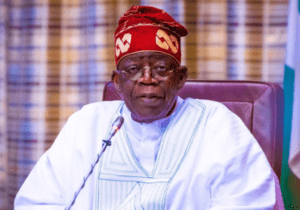Agitations for new constitution/power devolution: Between celebration of ignorance and coup plotting – Elaigwu Apeh
Continue from Monday edition
be certain absolute limits on constitutional amendment.
In 1965, Conrad gave a lecture on “Implied Limitations of the Amending Power” at the Law Faculty of the Banaras Hindu University, and afterwards wrote significant articles in Indian law journals on implied limits on constitutional amendment. The first and most important article was titled, “Limitations of Amendment Procedures and the Constituent Power” and was published in the Indian Yearbook of International Affairs in 1970. This article was also cited in the Kesavananda judgement. The second publication appeared in the Delhi Law Review in 1978 and was titled, “Constituent Power, Amendment and Basic Structure of the Constitution: A Critical Reconsideration”. In his lecture, which is said to have influenced Indian constitutional doctrine strongly, Conrad used extreme examples of constitutional amendments to draw attention to the idea of implied limits on constitutional amendments. See, Monika Poizin, “The basic-structure doctrine and its German and French origins: a tale of migration, integration, invention and forgetting, Indian Law Review, Journal homepage: https:ulwww.tandfonhine.comIloiIrilw2O.
The debate on the ‘basic structure’ of the Constitution, lying somnolent in the archives of India’s constitutional history during the last decade of the 20th century, has reappeared in the public realm. While setting up the National Commission to Review the Working of the Constitution (the Commission), the National Democratic Alliance government (formed by a coalition of 24 national and regional level parties) stated that the basic structure of the Constitution would not be tampered with. Justice M.N. Venkatachalaiah, Chairman of the Commission, has emphasised on several occasions that an inquiry into the basic structure of the Constitution lay beyond the scope of the Commission’s work. See, Venkatesh Nayak, “The Basic Structure of the Indian Constitution” 2016, International IDEALogo of Constitution Net.
On 13 May 2021, a panel of five High Court Justices unanimously adopted a significant ruling disqualifying The Constitution of Kenya (Amendment) Bill, 2020. The bill aimed to implement President Uhuru Kenyatta’s so called “Building Bridges Initiative (BBI)” and was supposed to be the most significant change to the state’s governmental structure since the constitution was adopted in 2010. It included the creation of 70 new constituencies, an increase in parliament-seats, the return of cabinet ministers to parliament-members, the creation of a Prime Minister position, together with Deputy Prime Ministers, and the creation of a Leader of Official Opposition in the National Assembly. Having been approved by the Legislature, the amendment awaited presidential approval after which it was supposed to go on to a referendum. The High Court ruled that the constitutional amendments are unconstitutional and, most importantly, that the so-called Basic Structure Doctrine applies in Kenya. Gautam Bhatia called the judgment “an instant classic” and “an example par excellence of transformative constitutionalism.” The judgment is not only a milestone from the perspective of comparative constitutional law; it might also change the future landscape of constitutionalism in Africa. See, Yaniv Roznai, “The Basic Structure Doctrine Arrives In Kenya Winds of Change for Constitutionalism in Africa?” 19 May, 2021, https//verfassungsblog.de/ the basic structure doctrine.
In the South African case of Executive Council of Western Cape Legislature v. The President of the Republic of South Africa & others, CCT/27/95; [1995] ZACC8; 1995 (10) BCLR 1289; 1995(4) SA 877, explained the doctrine as follows: “There are certain fundamental features of parliamentary democracy not spelt out in the Constitution but which are inherent in its nature, design and purpose… there are certain features of the constitutional order so fundamental that even if parliament followed the necessary amendment procedures it could not change them”.
In their wisdom, the courts did not lay down a list of provisions it considered to constitute the basic structure. Consequently, the claim of any particular feature of the constitution to be part of the “basic structure” is determined by the courts on a case by case basis. Whether or not a provision is part of the basic structure varies from country to country, depending on each country’s peculiar circumstances, including its history, political challenges and national vision. In answering this important question, courts will consider factors such as the preamble to the constitution, national objectives and directive principles of state policy (in countries which have them in their constitutions, such as Uganda), the bill of rights, the history of the constitution that led to the given provision, and the likely consequences of the amendment: Benson Tusasirwe, “The Basic Structure Doctrine and Constitutional Restraint:Take-away from the “Age Limit” Decision”, supra.
It is quite clear that by the basic structure doctrine, which is applicable in Nigeria as per Cocacola (Nig) Ltd V. Akinsanyo, supra, the efforts of the agitators and the National Assembly on the constitutional review are ultra vires and void ab initio. The kernel of the present review of the Constitution is devolution of power or restructuring. In Cocacola (Nig) Ltd V. Akinsanyo, supra, devolution of power or restructuring is clearly mentioned as one of the Basic Structures of our Constitution. If the agitation and the effort of the National Assembly is borne out of genuine ignorance of the basic structure doctrine in constitutional law, then, by virtue of this write-up, the exercise should be given decent burial. However, if the agitators and the National Assembly persist despite this write-up, then they are engaging in coup d’état. Above all, it is necessary for all to put aside the purported constitutional review and let us come to terms with problems of the nation created by our attitude.
I have taken a deep consideration of the agitations, principally the call for devolution of power. All I can read and understand is pure photocopy intellectualism, bankrupt in facts and logic. This has been ably captured by Simon Kolawole as follows: “Public debate in Nigeria, permit me to say, is not educative as you would find in many civilized societies. The predominant elements here are ethnic and religious emotions, garnished with delicate lies and dangerous half-truths. This first casualties, as always are facts and logic. There is the ‘herd instincts’ which makes us believe, say and do things like the people in our corner. The groupthink syndrome has stifled common sense and meaningful interlocution. For the fear of ‘dragging’, nobody wants to express an unpopular opinion. If you try to apply reason you may be shredded. As Professor Wale Adebanwi would say, it is treasonable to be reasonable in an unreasonable society”. Simon Kolawole, (True Federalism and other Fallacies, Thisday Sunday June 13, 2021 back page). For other great readings, see Simon Kolawole, “Restructuring and the 1963 Constitution”, (Thisday, Sunday, June 27 2021 back page) and Simon Kolawole, “We keep missing the point”, (Thisday, Sunday, July 3, 2021, back page).
Basketful of Corruption has made Nigeria Unitary State, not the Constitution
Nigerians are united in the practice of corruption as a way of life. From Ogun State to Yobe State, attitudes of Local Government Staff are the same; attitudes of businessmen and women in formal and informal sectors are the same; attitudes of States and Federal Civil Servants are the same; attitudes of trade unionist are the same; actions and policies of the Governors and members of the State Houses of Assembly are the same; and attitudes of ethno-regional and religions organizations are the same. Everything now is money. In fact, we are everything one but for our traditional dresses and mode of salutation.
The hallmark of the corruption is aggressive self-interest or self-first mentality. Ethnicity, regionalism and religiousity are tools for elimination of competition and all inclusiveness and therefore proved to be critical infrastructure for corruption.
Many Nigerians are ready to argue and indeed arguing that our problem is not corruption. So long someone is benefitting or potentially stands to benefit, there is nothing wrong with corruption. No amount of revenue generation and/or allocation can make any meaningful impact without a strong anti-corruption instrument. The ethno-regional and religious bodies, being part of the settlement infrastructure never talk of corruption as responsible for our problems.
When the ethno-regional and religious bodies ask of devolution of power, they are simply saying, devolve power and revenue associated with it so that there will be much more for devolution to them as part of the settlement infrastructure.
The South West is the leading exponent of true federalism/restructuring as political tool for ethno-regional chauvinism. However, our great father and leader, Chief Obafemi Awolowo, in whose great name and action it is formulated, is quiet different in character, industry, great learning and patriotism from the contemporary exponents that only need it for their aggressive self interest.
There is nothing developmental that a State or group of States on regional platform want to achieve that cannot be achieved by the nature of our constitutional federalism.
By the unanimous adoption of corruption as a way of life, we have enthroned a common value and sociological validation that we are one, unitarism. The present constitutional provision on federalism is therefore extravagant. Corruption is the greatest driver of poverty and insecurity in Nigeria. We must place anti-corruption fight above all matters. Every Nigerian must own the fight against corruption.
Nigeria needs Mind Restructuring, not Constitutional Restructuring
Joko Okupe, founder of mindshift advocacy group stated that what Nigeria need most is the restructuring of their minds to always do the right things.
(Daily Sun, July 21, 2021, page 20).
According to Simon Kolawole, “Cost of governance” is not determined by the constitution, it is determined by the operators of the constitution The 1999 Constitution prescribes one minister per state, which means we can do with 36 ministers, but we decided to appoint 43. Should we blame the constitution for that? A governor appoints 1,000 aides and buys 1,000 Prado SUVs and we think the high “cost of governance” is caused by the constitution? Lawmakers create millions of naira for themselves as monthly allowances but we want to blame the high “cost of governance” on the constitution? In the end, it is the operators of the constitution that decide either to be prudent or wasteful with public funds. Having six regions will not automatically translate to a massive reduction in costs. This is Nigeria”. Simon Kolawole, “Restructuring and the 1963 Constitution”, (Thisday, Sunday, June 27 2021 back page)
Simon Kolawole further said: “Meanwhile, the 36 states are allowed to “compete” by the 1999 Constitution. Abia styles itself as the “SME capital of Nigeria”. Cross River says it is Nigeria’s best tourist destination. Must competition be among only six regions when 36
To be continued




